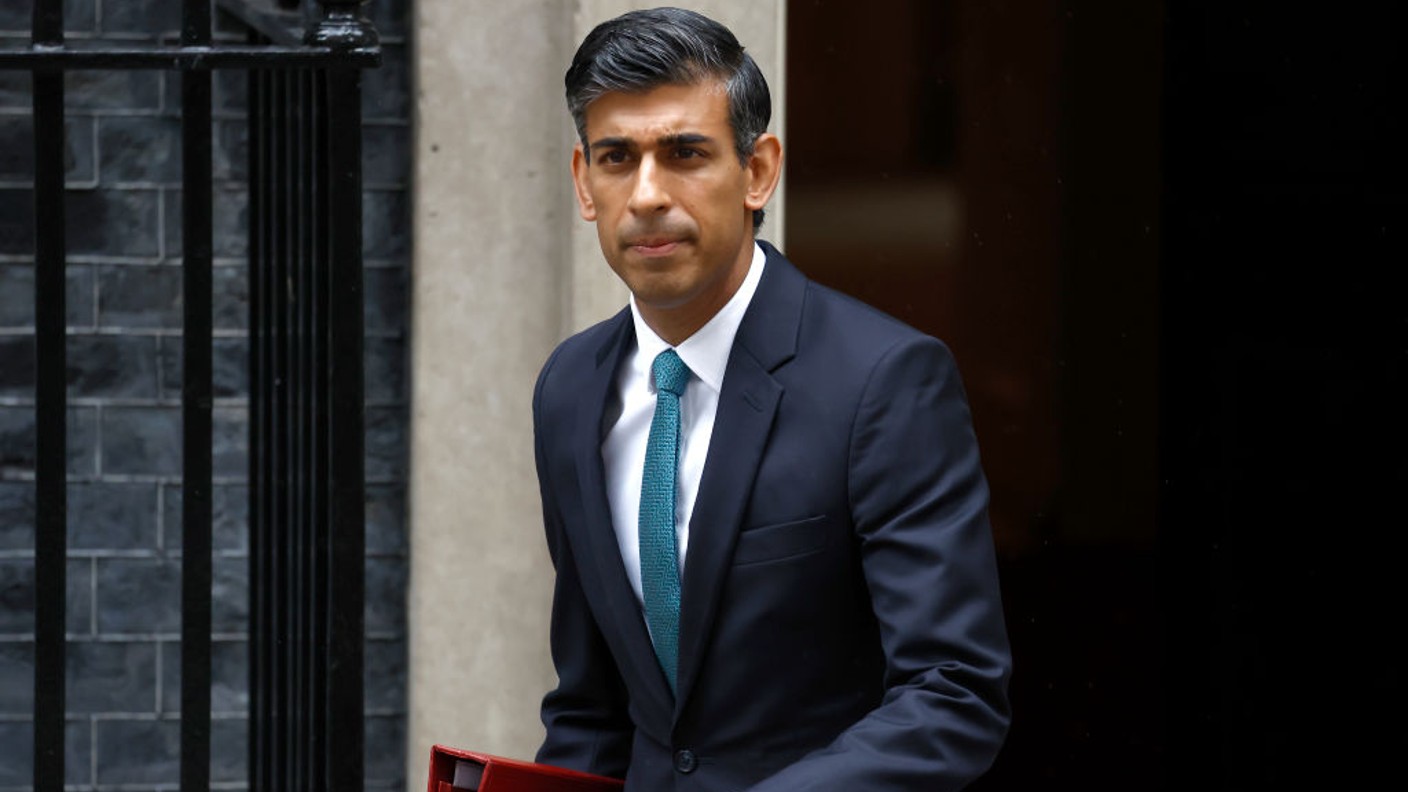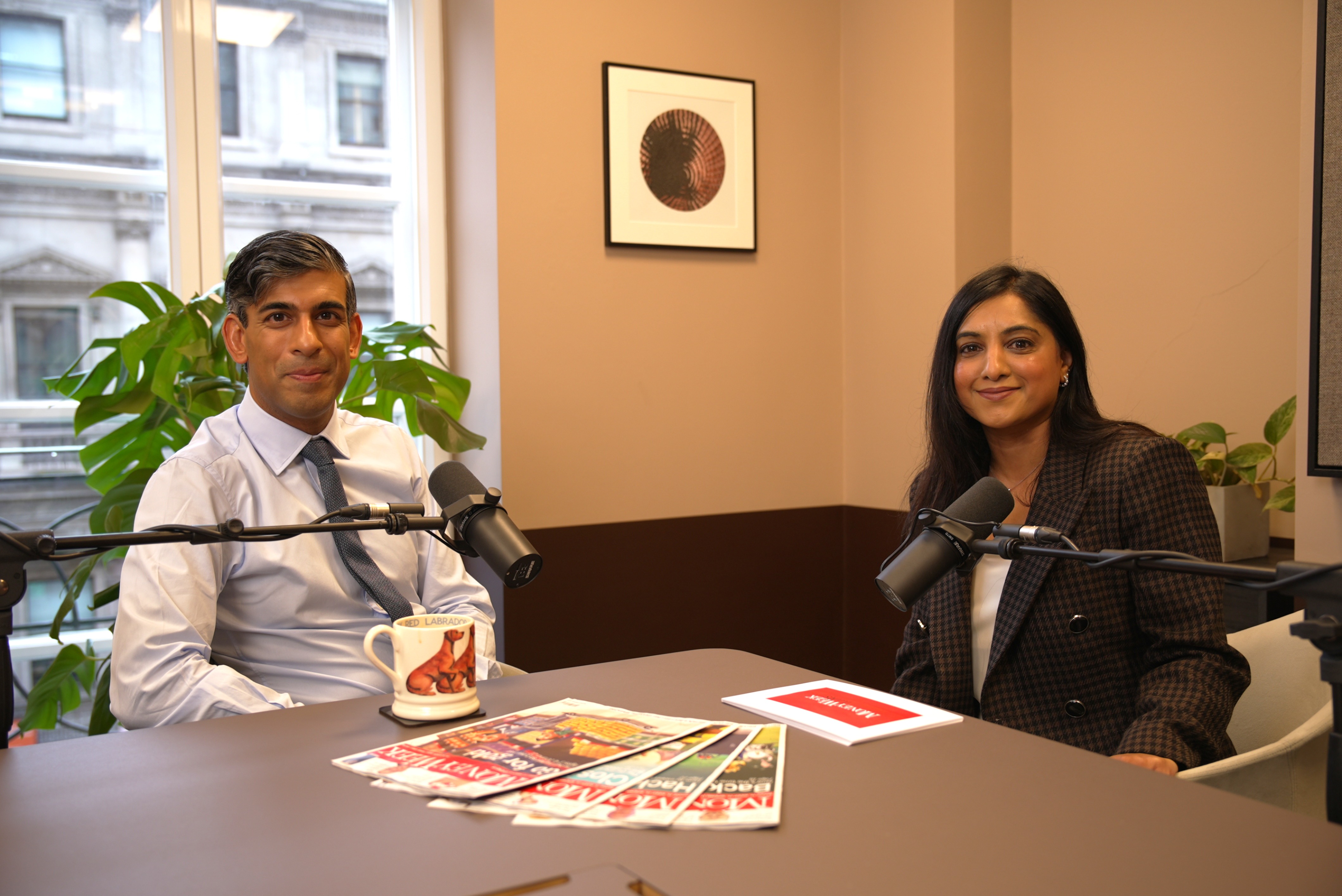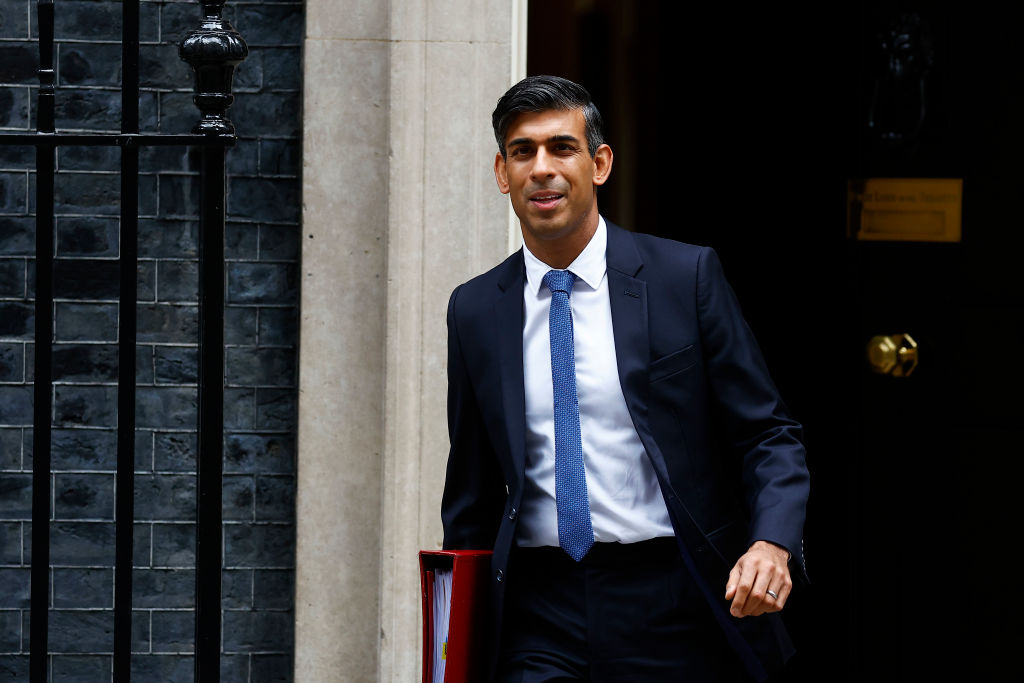Rishi Sunak's £50bn problem - why taxes could go up
New PM Rishi Sunak is facing the daunting task of sorting out the UK economy. Here we look at what his appointment could mean for your money.


Get the latest financial news, insights and expert analysis from our award-winning MoneyWeek team, to help you understand what really matters when it comes to your finances.
You are now subscribed
Your newsletter sign-up was successful
Want to add more newsletters?

Twice daily
MoneyWeek
Get the latest financial news, insights and expert analysis from our award-winning MoneyWeek team, to help you understand what really matters when it comes to your finances.

Four times a week
Look After My Bills
Sign up to our free money-saving newsletter, filled with the latest news and expert advice to help you find the best tips and deals for managing your bills. Start saving today!
Rishi Sunak has become the UK’s third prime minister in seven weeks. The former chancellor secured the top post after rival Penny Mordaunt dropped out of the race to become the leader of the Conservative Party earlier this week.
The new PM pledged to “fix” the “mistakes” made under his predecessor Liz Truss, who resigned after a turbulent 44 days in office.
In his first speech outside 10 Downing Street, Rishi Sunak acknowledged the country was in a “profound economic crisis” and that “difficult decisions” were going to be necessary in order to restore stability.
MoneyWeek
Subscribe to MoneyWeek today and get your first six magazine issues absolutely FREE

Sign up to Money Morning
Don't miss the latest investment and personal finances news, market analysis, plus money-saving tips with our free twice-daily newsletter
Don't miss the latest investment and personal finances news, market analysis, plus money-saving tips with our free twice-daily newsletter
Markets reacted positively to Sunak’s appointment as prime minister; borrowing costs dropped and the pound strengthened against the dollar.
But what will his appointment, and his new cabinet, mean for your money?
When is the first budget happening under Rishi Sunak?
The Autumn budget was originally scheduled for the end of November, but when Liz Truss’ first chancellor of the exchequer, Kwasi Kwarteng delivered his so-called mini-budget at the end of September, this timeline was thrown into disarray.
The resulting market turbulence forced a rethink. The new budget date was pulled forward to the end of October.
However, the announcement has now been pushed back again to 17 November to make sure it reflects the most accurate economic forecasts.
It will be delivered by Jeremy Hunt, who replaced Kwarteng after he resigned following the mini-budget chaos.
Hunt, a previous contender for the leadership of the Conservative Party, retained his position when Rishi Sunak took over the top job.
How big is the challenge facing the new chancellor?
According to reports Rishi Sunak and Jeremy Hunt are aiming to bring in tax hikes and spending cuts worth up to £50bn a year to fill a hole in the public finances. That's roughly 2% of the UK's GDP.
Initial projections put the scale of the budget black hole at between £30bn and £45bn. However, it seems as if the Treasury is looking to free up more cash than required in order to provide fiscal headroom.
Reports had suggested the new PM was reconsidering tax hikes, but it does not look as if that's the case.
One of the biggest issues facing Hunt is the lack of room for further spending cuts. He has pledged to get "debt falling over the medium term", and has warned of "very, very difficult decisions" when it comes to taxes and spending.
But according to the Institute for Fiscal Studies most departments' spending budgets are still as much as 25% below their 2010 levels in real terms.
That suggests there are no easy options when it comes to spending cuts for the chancellor.
What is happening to our taxes?
The chancellor has promised that “protecting the vulnerable - and people's jobs, mortgages and bills - will be at the front of our minds as we work to restore stability, confidence and long-term growth”.
Rishi Sunak introduced a 1.25% increase to National Insurance, which was undone by Liz Truss shortly after she came into office, as a way to raise money. But it seems unlikely he’ll u-turn on this.
When he was running his initial leadership campaign over the summer following Boris Johnson’s resignation, Sunak had also promised to cut the basic rate of Income Tax to 16% from 20%. However, this now seems unlikely given he has a massive hole to plug in the government’s finances.
Instead, it looks as if the government will try to raise money by keeping tax bands and thresholds frozen, pushing people into higher tax bands as wages go up.
There's also speculation that the government could increase capital gains taxes so they're more in line with income taxes, and add a council tax surcharge to homes worth more than £2m.
Hunt's said multiple times that he's committed to helping the vulnerable, and this suggests he could place an emphasis on increasing taxes for the wealthy over cutting benefits.
One option that could be on the table is scrapping the non-dom tax status as proposed by Labour. That would bring in an extra £3bn and would likely go down quite well with voters.
Will Rishi Sunak scrap the pensions triple lock?
In its 2019 manifesto, the Conservative Party committed to maintaining the state pension triple lock, which guarantees state pension will increase every year along with the rate of inflation, the rate of wage growth, or 2.5%, whichever is higher.
But with inflation currently running at 10.1%, this promise could become too costly to maintain. Sources have confirmed pensions are under consideration ahead of the new fiscal statement.
Liz Truss promised the triple-lock was safe in one of her last weeks in office, but Sunak’s government has yet to make the same commitment.
The Policy Exchange think tank, where Sunak worked before he was a member of parliament, has encouraged the government to ditch the measure and raise pensions in line with earnings instead.
As well as the pensions triple lock other benefits could be in the firing line for below-inflation increases.
What other options are on the table?
As the government tries to find extra tax revenue it's looking increasingly likely energy companies are going to have to pay more tax.
When he was chancellor, Sunak introduced a 25% "energy profits levy" on the income of UK oil and gas producers. This windfall tax is due to expire in December 2025, but it now looks as if Hunt will extend the levy.
What's more, he could extend it to renewable energy generators and other power producers.
Another politically safe option available to Hunt is to increase taxes on banks.
At present banks pay an 8% surcharge on profits as well as corporation tax of 25% taking the overall bank tax rate to 33%.
When he was chancellor Sunak had promised to reduce the surcharge to 3%, but keeping it at 8% would be a quick and easy way to raise an additional £500m a year (according to current projections).
Hunt could also cut the amount of interest the government pays out to lenders which have deposits at the Bank of England. While such a move would be equivalent to a windfall tax, it could save a staggering £90bn over the next two years.
Get the latest financial news, insights and expert analysis from our award-winning MoneyWeek team, to help you understand what really matters when it comes to your finances.
Nic studied for a BA in journalism at Cardiff University, and has an MA in magazine journalism from City University. She has previously worked for MoneyWeek.
-
 ISA fund and trust picks for every type of investor – which could work for you?
ISA fund and trust picks for every type of investor – which could work for you?Whether you’re an ISA investor seeking reliable returns, looking to add a bit more risk to your portfolio or are new to investing, MoneyWeek asked the experts for funds and investment trusts you could consider in 2026
-
 The most popular fund sectors of 2025 as investor outflows continue
The most popular fund sectors of 2025 as investor outflows continueIt was another difficult year for fund inflows but there are signs that investors are returning to the financial markets
-
 Rishi Sunak: MoneyWeek Talks
Rishi Sunak: MoneyWeek TalksPodcast On the MoneyWeek Talks podcast, Rishi Sunak tells Kalpana Fitzpatrick that we need better numeracy skills to improve financial literacy and boost the economy.
-
 Insurance tax cut could save homeowners and drivers £100s
Insurance tax cut could save homeowners and drivers £100sNews Chancellor Jeremy Hunt urged to cut insurance premium tax to help households manage rising costs
-
 Is an inheritance tax (IHT) cut on the way?
Is an inheritance tax (IHT) cut on the way?Tax Talk that the government might cut or scrap inheritance tax in its Autumn Statement is rife. We look at how it could be reformed, and what difference it would make.
-
 Act now to bag NatWest-owned Ulster Bank's 5.2% easy access savings account
Act now to bag NatWest-owned Ulster Bank's 5.2% easy access savings accountUlster Bank is offering savers the chance to earn 5.2% on their cash savings, but you need to act fast as easy access rates are falling. We have all the details
-
 Moneybox raises market-leading cash ISA to 5%
Moneybox raises market-leading cash ISA to 5%Savings and investing app MoneyBox has boosted the rate on its cash ISA again, hiking it from 4.75% to 5% making it one of top rates. We have all the details.
-
 October NS&I Premium Bonds winners - check now to see what you won
October NS&I Premium Bonds winners - check now to see what you wonNS&I Premium Bonds holders can check now to see if they have won a prize this month. We explain how to check your premium bonds
-
 Government considering cuts to inheritance tax, reports say
Government considering cuts to inheritance tax, reports sayThe Sunday Times reported government officials are considering cuts to inheritance tax ahead of the general election.
-
 The best packaged bank accounts
The best packaged bank accountsAdvice Packaged bank accounts can offer great value with useful additional perks – but get it wrong and you could be out of pocket
